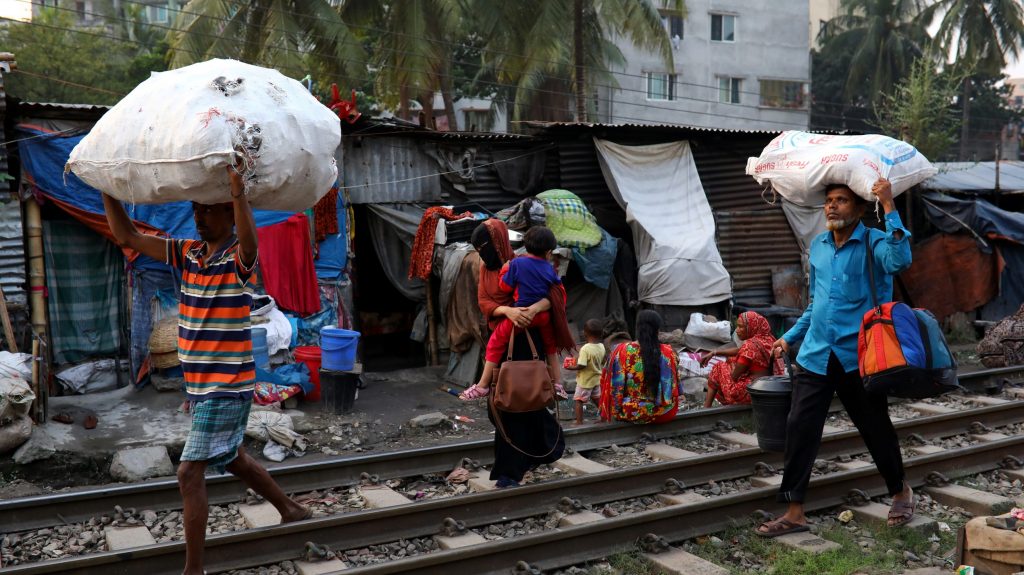Indigenous rights groups are warning that many families in Bangladesh who have lost jobs and income because of the coronavirus pandemic are not yet receiving aid, and many are facing starvation.
A joint statement from three Bangladeshi indigenous rights groups warns that the vast majority of those living in rural areas are day laborers, and are now out of work.
Bangladesh, a low lying county situated just east of India, has 3,400 confirmed cases of COVID-19 and has recorded 110 deaths. Officials say actual numbers are likely higher due to a lack of testing kits.
Romen Kisku, a Catholic father of five and member of the Santal ethnic group, told UCA News that his family has received a small amount of food aid from a charity, but he worries it will not be enough to feed his 10-member family. He and his family live in the northern region of Dinajpur, and he said he hopes to find work in a neighboring region as a paddy farmer.
“Three men of our family are day laborers and our income pays for everything. Now we cannot go to work and government aid has not reached us. The minimal aid was too little for our family, so we have to go on starving if things don’t improve,” Kisku told UCA News.
Ethnic-minority Santal people live mostly in northwestern Bangladesh as well as parts of India and Nepal. About eight percent are Christian.
Bangladesh has a low percentage of Catholics— as low as 0.3% in some areas— and the Catholic aid group Caritas is struggling to raise funds for the poor.
“We have made an appeal to people in our parishes and areas, so they come up with whatever they can to assist those having hard times during this crisis. The suffering of people will intensify if the crisis lingers, so we need to help people any way possible,” Bishop Sebastian Tudu of Dinajpur told UCA News.
Though the government and charitable organizations are mobilizing to provide relief, the remoteness of the areas where many indigenous people live mean that in some areas, very few families have yet received government assistance.
Though Catholic Relief Services is active in providing aid in refugee camps in Bangladesh, a CRS spokesperson confirmed to CNA that CRS is not currently active in the Dinajpur region.
The branch of Caritas in the southeastern port city of Chittagong has taken two emergency cash handouts of 2,250 taka (US$27) and 1,547 taka to support 950 families on the hills, UCA News reported.
Bangladesh’s government started food relief and subsidized food sales at the end of March, aiming to support about 50 million poor and needy people across the country, UCA News reports.
Bangladesh imposed a nationwide lockdown March 26, with a restriction of no more than five people allowed to congregate in prayer in a mosque, the New York Post reported. Despite this, on April 18 a crowd of some 100,000 people gathered for a funeral in Brahmanbaria, in the eastern part of the country.

